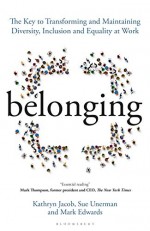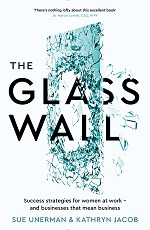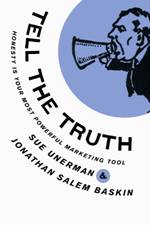-
Belonging:
Sue's new book is out now and available at amazon.co.uk

-
The Glass Wall:
Sue's second book is out now and available at amazon.co.uk

-
Tell the Truth:
Sue's first book is available to buy now at amazon.co.uk

-
Pages
-
Archives
- January 2023
- November 2022
- October 2022
- September 2022
- August 2022
- July 2022
- May 2022
- April 2022
- March 2022
- February 2022
- January 2022
- December 2021
- November 2021
- October 2021
- September 2021
- August 2021
- July 2021
- June 2021
- May 2021
- April 2021
- March 2021
- February 2021
- January 2021
- December 2020
- November 2020
- October 2020
- September 2020
- August 2020
- July 2020
- June 2020
- May 2020
- April 2020
- March 2020
- February 2020
- January 2020
- December 2019
- November 2019
- October 2019
- September 2019
- August 2019
- July 2019
- June 2019
- May 2019
- April 2019
- March 2019
- February 2019
- January 2019
- December 2018
- November 2018
- October 2018
- September 2018
- August 2018
- June 2018
- May 2018
- April 2018
- March 2018
- February 2018
- January 2018
- December 2017
- November 2017
- October 2017
- September 2017
- August 2017
- July 2017
- June 2017
- May 2017
- April 2017
- March 2017
- February 2017
- January 2017
- December 2016
- November 2016
- October 2016
- September 2016
- August 2016
- July 2016
- June 2016
- May 2016
- April 2016
- March 2016
- February 2016
- January 2016
- December 2015
- November 2015
- October 2015
- September 2015
- August 2015
- July 2015
- June 2015
- May 2015
- April 2015
- March 2015
- February 2015
- January 2015
- December 2014
- November 2014
- October 2014
- September 2014
- August 2014
- July 2014
- June 2014
- May 2014
- April 2014
- March 2014
- February 2014
- January 2014
- November 2013
- October 2013
- September 2013
- August 2013
- July 2013
- June 2013
- May 2013
- April 2013
- March 2013
- February 2013
- January 2013
- December 2012
- November 2012
- October 2012
- September 2012
- August 2012
- July 2012
- June 2012
- May 2012
- April 2012
- March 2012
- February 2012
- January 2012
- December 2011
- November 2011
- October 2011
- September 2011
- August 2011
- July 2011
- June 2011
- May 2011
- April 2011
- March 2011
- February 2011
- January 2011
- December 2010
- November 2010
- October 2010
- September 2010
- August 2010
- July 2010
- June 2010
- May 2010
- April 2010
- March 2010
- February 2010
- January 2010
- November 2009
- October 2009
- September 2009
- August 2009
- July 2009
- June 2009
-
Disclaimer:
The opinions expressed on this site are my own and do not necessarily reflect the views of my employer. The posts on this blog are provided 'as is' with no warranties and confer no rights.
Sue Unerman MediaComment is proudly powered by
WordPress
Entries (RSS)
and Comments (RSS).
The 4th Estate versus the 5th Estate
Tuesday, July 12th, 2011Image credit: http://instanta.blogspot.com
People are starting to call Twitter the 5th Estate.
The “Estates” are the forces of power in our nation. Traditionally, dating right back to medieval notions of status and hierarchy, the first 3 estates of the nation are clergy, noblemen and the commons. In the eighteenth century, as printing technology became mass market relatively, the 4th estate – the Press – became as powerful in influence.
One of the earliest references is from Thomas Carlyle quoting Burke from 1787 :
“Burke said there were 3 estates in parliament, but in the reporters gallery yonder there sat a 4th estate more important far than they all”.
For a couple of centuries that 4th estate has indeed been massively influential over the state of public opinion in the UK. The freedom of publications to publish opinion to sway the nation has been general and held sacrosanct. The editors and leader writers of the nation’s newspapers have had the right to express their views and deliver rallying cries to lead the nation to challenge the status quo, to criticize governments and to deliver sharp corrective lashes when entertainment media (like Channel 4 or the BBC) are believed to be getting out of hand.
Now we have Twitter as the 5th Estate. Is it as powerful ? It is certainly as opinionated (if not more so). It differs from traditional publication in being unmediated, in being more sudden and of course more anonymous.
When protests are organised by Twitter, when opinion and gossip spreads like wildfire online, this is unprecedented in speed and in scale. It also seems to have a sense of righteousness that even exceeds that of the traditional middle England and popular newspaper brands.
In the Times columnist Sathnam Sanghera spoke this week of his dislike of Twitter – that he’s fallen back in love with newspapers. That newspapers give considered and thoughtful arguments (I think he means The Times in particular). He asks “when did Twitter become synonymous with public opinion?”
He’s right of course that the expression of opinion online is a far cry from a carefully crafted editorial view. If the www has proved anything it has proved that an infinite number of monkeys with typewriters will not produce Shakespeare or anything like it. Plenty of rants and strong rallying cries certainly instead.
I too love quality journalism. But the power of new communication channels to influence and affect the mood of the nation is not to be ignored.
Well I like the 4th Estate and I like the 5th Estate – but which is better? There’s really only one way to find out…..
Posted in MediaComment | 1 Comment »